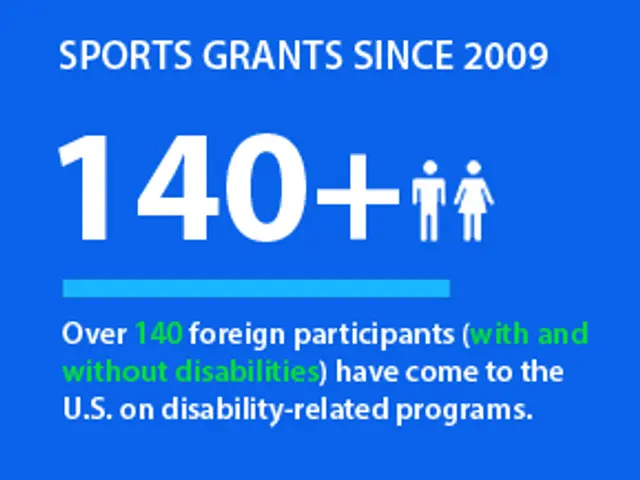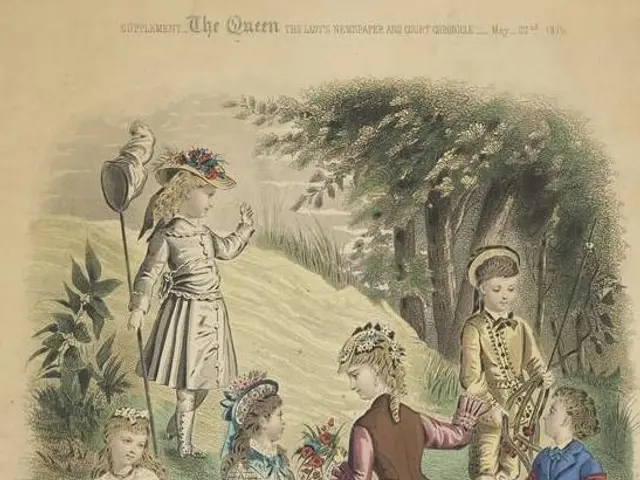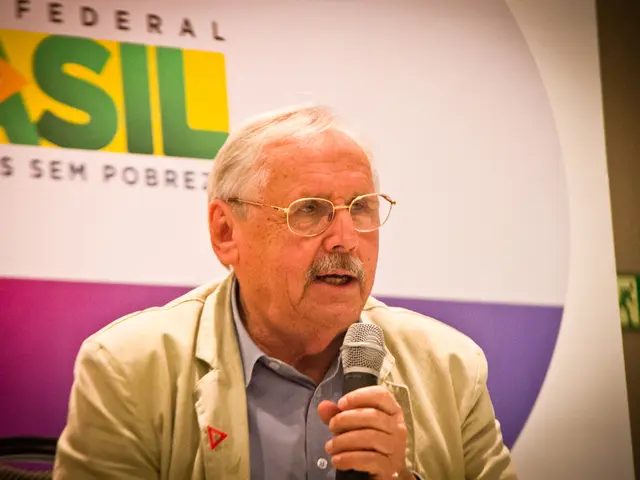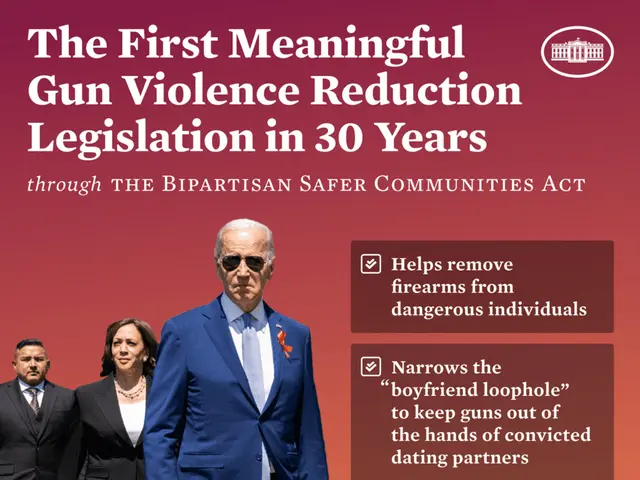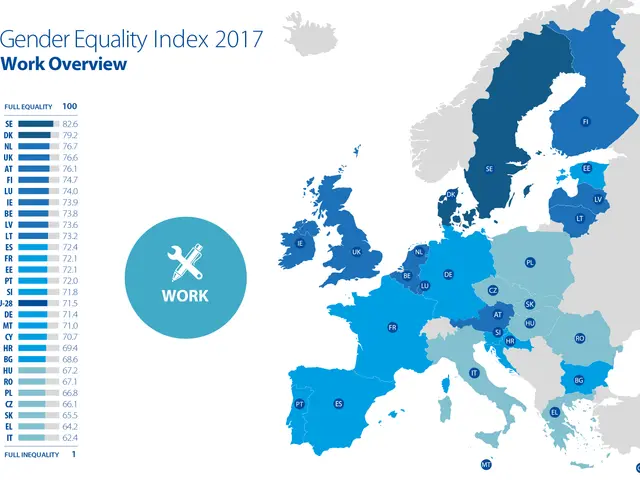Upcoming Presidential Election in Poland Anticipates Close Race
Tomorrow, Poland will witness a deciding second-round presidential election as centrist candidate Rafal Trzaskowski and conservative Karol Nawrocki vie for the country's highest office. The past two weeks have witnessed a closely contested race between these two candidates, representing Poland's major political camps—the center-right Civic Platform and the nationalist-conservative Law and Justice (PiS) party.
Over the past 20 years, these parties have held significant influence in Polish politics, and they have not been on amicable terms. Recent polls have shown a near deadlock between the candidates, with both being tied at approximately 47%, or a one-percentage-point advantage for either. The election's outcome will likely be extremely close.
At stake is the future of the current pro-EU coalition government. With a centrist ally in the presidential palace, they can pursue their reform agenda. In contrast, continued political stalemate may persist until the next parliamentary election in 2027, should another conservative president come into office.
Outgoing President Andrzej Duda, an ally of PiS, has vetoed or delayed numerous bills passed by the coalition government in the last 18 months. This has hindered the government's attempts to reverse changes made to the judiciary during PiS's tenure from 2015 to 2023, and has also held off proposing the liberalization of abortion laws due to Mr. Duda's likely opposition.
Progressive, liberal, and centrist voters see a Nawrocki presidency as more of the same, if not worse. Polish voters will cast their ballots on Sunday, and a significant swing in the election's outcome could either favor Trzaskowski or Nawrocki.
Though Poland's president holds a largely ceremonial role, they can veto bills passed by parliament. A 60% majority in parliament is needed to overturn the veto, but the current government falls short of such a number. The president is also the commander-in-chief of Poland's armed forces and oversees security and defense policy, resulting in the office wielding considerable power.
The campaign, which started in January, has primarily been "99% ideological and maybe 1% issue-based," according to Andrzej Bobinski, managing director of Polityka Insight. Trzaskowski, a centrist mayor of Warsaw who narrowly lost the previous presidential election to Mr. Duda in 2020, has been the frontrunner throughout. However, his lead nearly evaporated in the first round.
Recently, Trzaskowski and his team have focused on mobilizing more left and hard-left voters, as well as young female voters, many of whom feel disappointed with the ruling coalition's lack of progress on liberalizing Poland's strict abortion laws. According to Magdalena Jakubowska, vice-president of the think tank Res Publica Foundation in Warsaw, "Women hardly believe that even with the President from the same political spectrum, anything will change."
Meanwhile, Nawrocki, a historian and social conservative with no political experience, has the full backing and support of PiS's political machine. Despite several scandals during his campaign, he has managed to secure the support of the PiS electorate.
The outcome of the election may have implications for Poland's internal policies and its relations with the EU and other international partners. The relevant details are included below:
Potential Implications of Their Victory:
Karol Nawrocki's Victory:
- Conservative Agenda: A Nawrocki win is likely to reinforce conservative policies in Poland, potentially impacting issues like civil partnerships, abortion rights, and national defense.
- Historical Narratives: As head of the Institute of National Remembrance, Nawrocki has advanced narratives that emphasize Polish resistance to the Nazis, while minimizing discussions on Polish antisemitism and complicity in Nazi crimes[1].
- International Relations: His support from U.S. President Donald Trump and Poland's conservative establishment could strengthen alliances with like-minded countries, potentially impacting Poland's stance on EU and international issues[1][2].
Potential Impact on Poland:
- Divided Society: The election has highlighted deep divisions within Polish society, with Nawrocki's focus on right-wing policies potentially exacerbating these divisions.
- Economic and Social Policies: The outcome could also influence economic and social policies, as Nawrocki's conservative stance may lead to more restrictive laws and policies.
- EU Relations: Poland's relations with the EU could become more complex if Nawrocki's policies diverge significantly from EU norms, potentially affecting economic cooperation and integration[2].
Overall, Nawrocki's victory signals a shift towards more conservative governance in Poland, which could have significant implications for the country's internal policies and its relations with the EU and other international partners.
- The future of education-and-self-development and personal-growth programs in Poland could be affected by the upcoming presidential election, as the candidates hold different views on these matters.
- Mindfulness and general-news websites have been abuzz with discussions about the potential impact of the election on job-search opportunities and career-development prospects.
- The outcome of the election may also affect migration policies within Poland, which could in turn influence productivity and online-education accessibility.
- As the president holds significant power over policy-and-legislation, the winning candidate could potentially establish new policies on crime-and-justice and accidents, including car-accidents and fires.
- During a political rally, Trzaskowski mentioned the importance of lifelong-learning and skills-training for the youth to prepare them for a competitive world, a sentiment echoed by many progressive voters.
- In a campaign speech, Nawrocki stressed the need for goal-setting and goal-achievement in the country, drawing parallels to the success of sports teams like the champions-league winners, the football clubs of the premier-league, and American-football teams like the NFL, Serie-A, Laliga, and the NCAA-football teams.
- The political divisions in Poland, as highlighted by the heated presidential race, have led to controversies in sports, with disagreements amongst fans over which European-leagues or American-football teams to support.
- The election's outcome may impact Poland's foreign policy, particularly in relation to war-and-conflicts and international cooperation, as the president serves as the commander-in-chief of the armed forces.
- Polish voters are cautioned to exercise diligence and critical thinking when making their decisions, as the election could have far-reaching consequences for the country's future development.
- The head of the Res Publica Foundation also mentioned the need for politicians to focus more on policy-making and less on ideological skirmishes, emphasizing the importance of tackling issues like poverty, inequality, and environmental degradation.
- The campaign trail has highlighted the candidates' stance on education, with Trzaskowski advocating for increased funding and support for schools, while Nawrocki emphasizes the importance of traditional values in teaching.
- If Trzaskowski wins the election, he has promised to work towards increasing access to online-education platforms to ensure that every Polish citizen, regardless of their location, has an opportunity to learn and grow.
- An analysis of the election's outcome by Polityka Insight shows a growing trend of political polarization in Poland, with a rising number of voters identifying as either left or right, and a decrease in moderate or centrist voters.
- A Nawrocki presidency could have far-reaching implications for Poland's relations with the EU, particularly on issues like climate change, green energy, and adherence to human rights norms.
- The election is a testament to the resilience of Polish democracy, showcasing the power of the people's vote to shape the country's future direction and to advocate for their personal growth, education, and the development of the nation as a whole.

